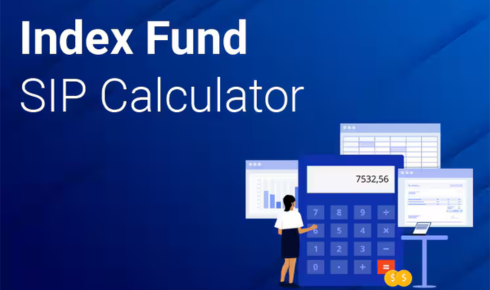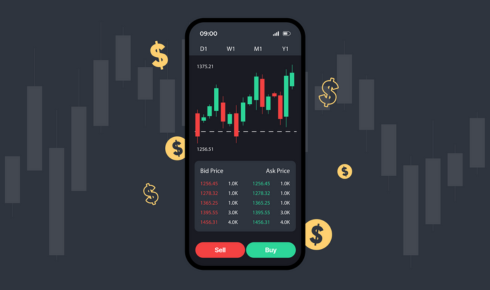Discover the full potential of ETFs with HDFC SKY, the cutting-edge discount-broking platform from HDFC Securities. Offering a wide range of investment opportunities including Indian equities, ETFs, mutual funds, and more, HDFC SKY provides a user-friendly experience with zero account-opening charges and expert research insights. Explore how ETFs work and why investors are increasingly opting for them in this comprehensive guide.
Introduction to ETFs
HDFC SKY, introduced by HDFC Securities, provides investors with a comprehensive platform to access a wide range of investment options, including ETFs. Exchange-Traded Funds (ETFs) are investment funds that are traded on stock exchanges, similar to individual stocks. They offer investors the opportunity to diversify their portfolios by investing in a basket of securities, such as stocks, bonds, or commodities, through a single investment vehicle. HDFC SKY’s zero account-opening charges and flat brokerage fee per order make it cost-effective for investors to trade ETFs, allowing them to build a diversified portfolio without incurring high fees. Additionally, the platform’s expert research and intuitive tools provide investors with the necessary information and analysis to make informed investment decisions when trading ETFs.
ETF SIP Calculator is an invaluable tool within the HDFC SKY platform that assists investors in planning their ETF investments systematically. By inputting variables such as investment amount, expected returns, and investment duration, users can estimate potential portfolio growth, making data-driven investment decisions to optimize returns and minimize risks efficiently.
Investing in ETFs through HDFC SKY also offers investors the benefit of lifetime free ETFs, making it an attractive option for those looking to invest in a cost-efficient manner. With interest-bearing margin trading available on the platform, investors have the opportunity to leverage their investments and potentially enhance their returns when trading ETFs. The platform’s seamless access to Indian equities, mutual funds, IPOs, derivatives, commodities, currencies, and global stocks provides investors with a diverse range of investment options to suit their financial goals and risk appetite. Overall, HDFC SKY’s introduction to ETFs empowers investors to access a convenient and efficient way to diversify their portfolios and participate in the growth of various asset classes.
Understanding the Full Form of ETF
Exchange-Traded Funds (ETFs) are a popular investment tool that combines the features of both stocks and mutual funds. ETFs are essentially a basket of securities that can be traded on stock exchanges, allowing investors to diversify their portfolios without having to buy individual stocks or bonds. The full form of ETF stands for Exchange-Traded Fund, which represents a type of investment fund that is traded on stock exchanges much like individual stocks. HDFC SKY, offered by HDFC Securities, provides investors with easy access to a wide range of ETFs, enabling them to invest in various asset classes such as equities, commodities, currencies, and global stocks.
One of the key advantages of ETFs is their low cost structure compared to traditional mutual funds. With HDFC SKY, investors can benefit from zero account-opening charges and a flat brokerage fee of ₹20 per order for a lifetime, especially for ETF transactions. Additionally, HDFC SKY offers interest-bearing margin trading, expert research, and intuitive tools to help investors make informed decisions when trading ETFs. By understanding the full form of ETF and leveraging the features of platforms like HDFC SKY, investors can access a diverse range of investment opportunities and build a well-rounded portfolio tailored to their financial goals and risk tolerance.
ETFs offer diversified exposure across various sectors and markets, allowing investors to spread risk efficiently. HDFC SKY simplifies the investment process with its user-friendly platform, enabling seamless transactions. With educational resources and real-time market data, HDFC SKY empowers investors to navigate the complexities of the financial landscape effectively.
History and Evolution of ETFs
Exchange-Traded Funds (ETFs) have a fascinating history that dates back to the early 1990s. The first-ever ETF, the Standard & Poor’s Depositary Receipts (SPDR), commonly known as SPY, was introduced by State Street Global Advisors in 1993. Initially designed to track the performance of the S&P 500 Index, ETFs quickly gained popularity due to their low costs, tax efficiency, and ability to provide diversification to investors with a single trade. Over the years, the ETF industry has evolved significantly, with the introduction of various types of ETFs such as sector-specific, commodity, bond, and leveraged ETFs, catering to different investment strategies and objectives. Today, ETFs have become a crucial component of many investors’ portfolios, offering them exposure to a wide range of asset classes across global markets.
As the demand for ETFs continues to grow, innovations in the ETF space have been remarkable. From smart beta and thematic ETFs to actively managed and socially responsible ETFs, the industry has witnessed a proliferation of new products that provide investors with more choices and flexibility. The evolution of ETFs has also led to the rise of online trading platforms like HDFC SKY by HDFC Securities, which offer investors convenient and cost-effective ways to access ETFs and other investment products. With features like zero account-opening charges, flat brokerage fees, expert research, and user-friendly tools, platforms like HDFC SKY have made it easier for investors to build diversified portfolios and navigate the complexities of the financial markets.
Types of ETFs Available
HDFC SKY provides access to a wide range of Exchange-Traded Funds (ETFs) that cater to different investment objectives and strategies. One of the popular types of ETFs available on the platform is equity ETFs, which allow investors to gain exposure to a diversified portfolio of stocks representing a particular index or sector. These ETFs offer a cost-effective way to invest in the equity market without having to buy individual stocks. Another type of ETF offered is bond ETFs, which provide investors with exposure to a diversified portfolio of bonds, offering a convenient way to invest in fixed-income securities. These ETFs can help investors achieve a balanced and diversified portfolio.
Additionally, HDFC SKY offers commodity ETFs, which track the performance of a specific commodity or a basket of commodities. These ETFs provide investors with exposure to the commodity market without the need to directly invest in physical commodities. Furthermore, sector ETFs are available on the platform, allowing investors to focus on specific industries or sectors of the economy. By investing in sector ETFs, investors can capitalize on the growth potential of a particular sector while diversifying their portfolio. With a diverse range of ETFs available on HDFC SKY, investors have the opportunity to build a well-rounded investment portfolio tailored to their financial goals and risk tolerance.
How ETFs Work in the Market
Exchange-traded funds (ETFs) are a type of investment fund that are traded on stock exchanges, similar to individual stocks. HDFC SKY, offered by HDFC Securities, provides investors with easy access to a wide range of ETFs, including those focused on Indian equities, as well as global stocks, commodities, currencies, and more. ETFs work by pooling investor funds to purchase a diversified portfolio of assets, such as stocks, bonds, or commodities. These funds are then divided into shares, which are traded on the exchange at market prices throughout the trading day. Unlike mutual funds, ETFs can be bought and sold at any time during market hours at prices that fluctuate based on supply and demand.
PNB share price fluctuations can influence ETF market dynamics as ETFs tracking financial sectors allocate assets among various banks, including PNB. This impacts the ETF’s overall performance, offering investors a nuanced view of market trends. Constant monitoring of such factors is essential for making informed investment decisions in an evolving market landscape.
One of the key advantages of ETFs is their low cost structure. HDFC SKY, with its flat ₹20-per-order brokerage for ETFs, offers a cost-effective way for investors to gain exposure to various asset classes. Additionally, ETFs provide diversification benefits, as they typically hold a basket of securities that spread risk across different companies or industries. This can help reduce the impact of individual stock price fluctuations on the overall portfolio. Furthermore, ETFs are known for their transparency, as their holdings are disclosed daily, allowing investors to know exactly what assets they are investing in. Overall, ETFs offer a convenient and efficient way for investors to build a diversified investment portfolio with ease.
Benefits of Investing in ETFs
Investing in ETFs through platforms like HDFC SKY offered by HDFC Securities provides numerous benefits to investors. One key advantage is diversification. ETFs offer exposure to a wide range of securities within a single fund, reducing the risk associated with investing in individual stocks. This diversification helps spread out risk and can potentially lead to more stable returns over time. Additionally, ETFs are known for their low costs. With HDFC SKY’s zero account-opening charges and flat brokerage fee per order, investors can minimize their expenses and keep more of their investment returns. Furthermore, ETFs are highly liquid, allowing investors to easily buy and sell shares on the stock exchange at market prices, providing flexibility and convenience in managing their investments.
Another benefit of investing in ETFs is transparency. ETFs disclose their holdings daily, allowing investors to see exactly what they are investing in. This transparency enables investors to make more informed decisions about their portfolios. Additionally, ETFs offer tax efficiency. Due to their unique structure, ETFs typically have lower capital gains distributions compared to mutual funds, resulting in potential tax savings for investors. Moreover, investing in ETFs through a platform like HDFC SKY provides access to a wide range of investment options, including Indian equities, global stocks, mutual funds, commodities, and more. This diverse range of investment choices allows investors to build a well-rounded portfolio tailored to their investment goals and risk tolerance.
Factors to Consider When Choosing ETFs
When considering ETFs on the HDFC SKY platform, investors should prioritize factors such as expense ratio, liquidity, tracking error, and underlying assets. The expense ratio reflects the annual cost of owning an ETF and can significantly impact long-term returns. Lower expense ratios are generally favorable for investors as they reduce the drag on overall performance. Liquidity is another crucial factor to consider, as it determines how easily an investor can buy or sell shares of an ETF without significantly impacting its price. ETFs with higher trading volumes typically have narrower bid-ask spreads, making them more cost-effective to trade.
Furthermore, investors should pay attention to the tracking error of an ETF, which measures how closely the fund’s performance mirrors that of its underlying index. A low tracking error indicates that the ETF is effectively replicating the index, providing investors with the expected returns. Understanding the underlying assets of an ETF is also important, as it influences the fund’s risk and return profile. Investors should assess whether the assets held by the ETF align with their investment objectives and risk tolerance. By considering these factors when choosing ETFs on the HDFC SKY platform, investors can make informed decisions that align with their financial goals and preferences.
Comparison of ETFs with Mutual Funds
Exchange-Traded Funds (ETFs) and Mutual Funds are both popular investment options, but they have key differences that investors should consider. ETFs are traded on stock exchanges like individual stocks, allowing investors to buy and sell them throughout the trading day at market prices. On the other hand, mutual funds are bought and sold at the end of the trading day at the net asset value (NAV) price. This key difference provides investors with more flexibility and liquidity when investing in ETFs, as they can react quickly to market changes and have the ability to manage their portfolios actively.
Furthermore, ETFs typically have lower expense ratios compared to mutual funds, making them a cost-effective investment option. Additionally, ETFs offer transparency in terms of holdings, as their portfolios are disclosed daily, allowing investors to know exactly what they are investing in. Mutual funds, on the other hand, disclose their holdings less frequently, usually on a quarterly basis. This transparency can be beneficial for investors who want more control over their investments and prefer to know the underlying assets of their funds. Overall, both ETFs and mutual funds have their advantages and drawbacks, and investors should carefully consider their investment goals and preferences before choosing between the two.
Stock trading app users can also enjoy the flexibility and ease of trading ETFs, as these platforms often provide real-time data and advanced analytical tools. The ability to buy and sell ETFs throughout the trading day allows for strategic decision-making and portfolio adjustments, aligning with both short-term and long-term investment strategies.
Risks Associated with ETF Investments
Investing in Exchange-Traded Funds (ETFs) comes with several risks that investors should be aware of. One significant risk associated with ETF investments is market risk. Since ETFs track the performance of an underlying index, any fluctuations in the market can directly impact the value of the ETF. This means that if the index the ETF is tracking experiences a downturn, the value of the ETF will also decrease. Another risk is liquidity risk, which refers to the ease with which an investor can buy or sell shares of the ETF. If the ETF has low trading volume, it may be challenging to find a buyer or seller at a desired price, leading to potential losses for the investor.
Additionally, ETF investments carry tracking error risk. This risk arises when the ETF fails to perfectly replicate the performance of the underlying index due to factors such as fees, expenses, and trading costs. As a result, investors may not achieve the exact returns they expected based on the index’s performance. Furthermore, ETFs are also subject to counterparty risk when they engage in derivatives or securities lending. If the counterparty defaults, it can lead to losses for the ETF investors. Understanding these risks and conducting thorough research before investing in ETFs is crucial to making informed investment decisions.
Future Trends in ETF Investing
Future trends in ETF investing are expected to focus on increased transparency, customization, and diversification options for investors. With the rise of digital platforms like HDFC SKY by HDFC Securities, investors can expect more seamless access to a wide range of investment products, including ETFs, mutual funds, and global stocks. These platforms are likely to offer zero account-opening charges and competitive brokerage rates, making it easier and more cost-effective for investors to build diversified portfolios. Additionally, the integration of expert research and intuitive tools within these platforms can empower investors to make more informed investment decisions.
As technology continues to evolve, the future of ETF investing may also see the integration of artificial intelligence and machine learning algorithms to provide personalized investment recommendations and portfolio management services. These advancements can help investors optimize their asset allocation strategies and better navigate market volatility. Furthermore, the growing popularity of socially responsible investing (SRI) and environmental, social, and governance (ESG) criteria is expected to drive the development of more ESG-focused ETFs, catering to the increasing demand for sustainable and ethical investment options. Overall, the future of ETF investing is poised to offer investors greater control, flexibility, and opportunities for long-term wealth accumulation.





